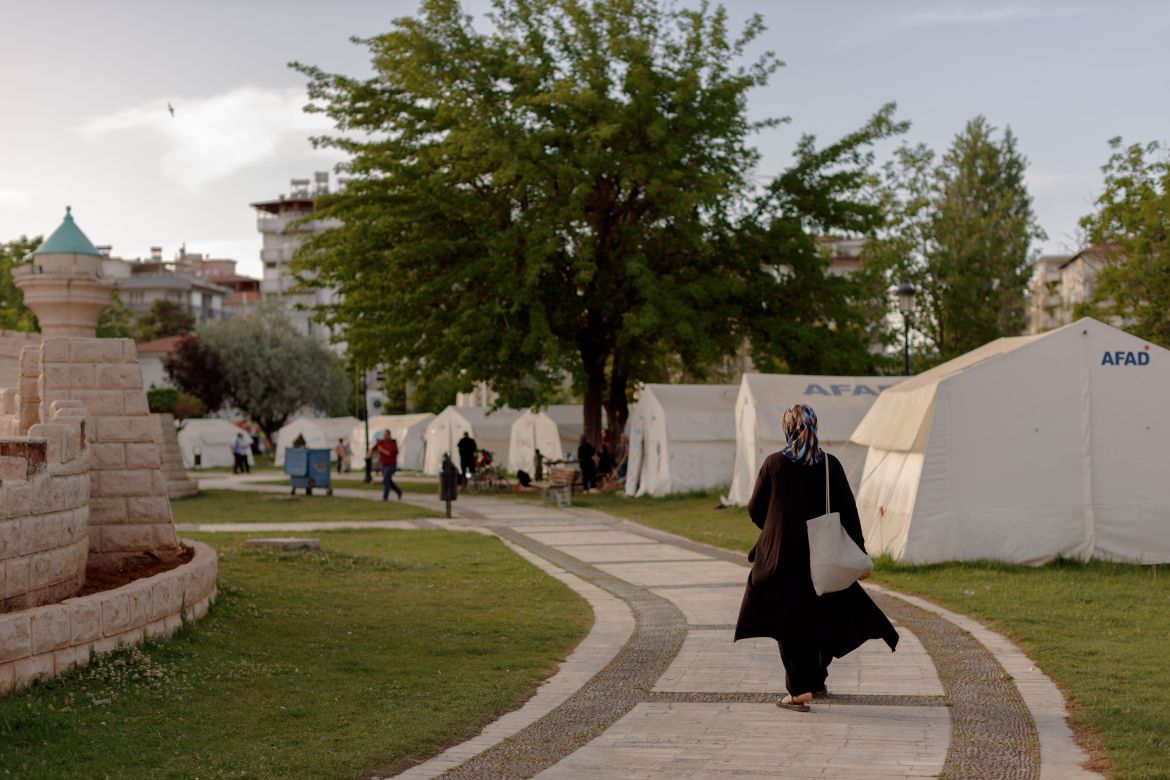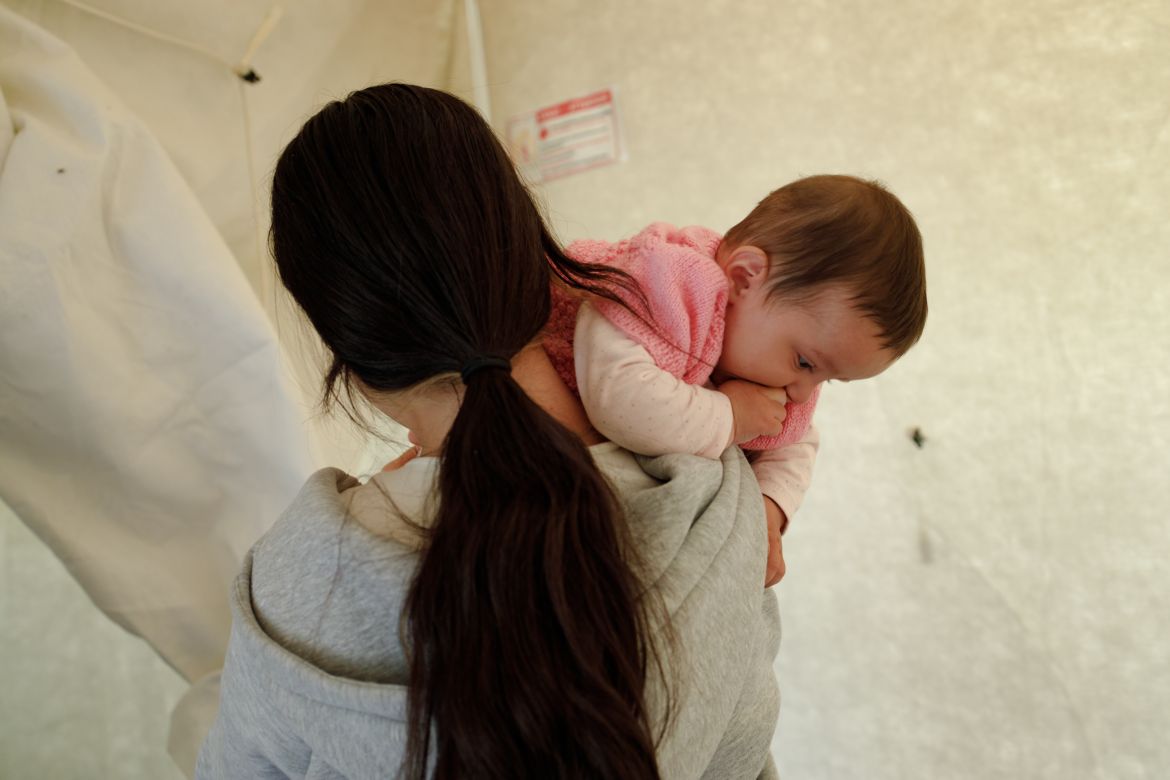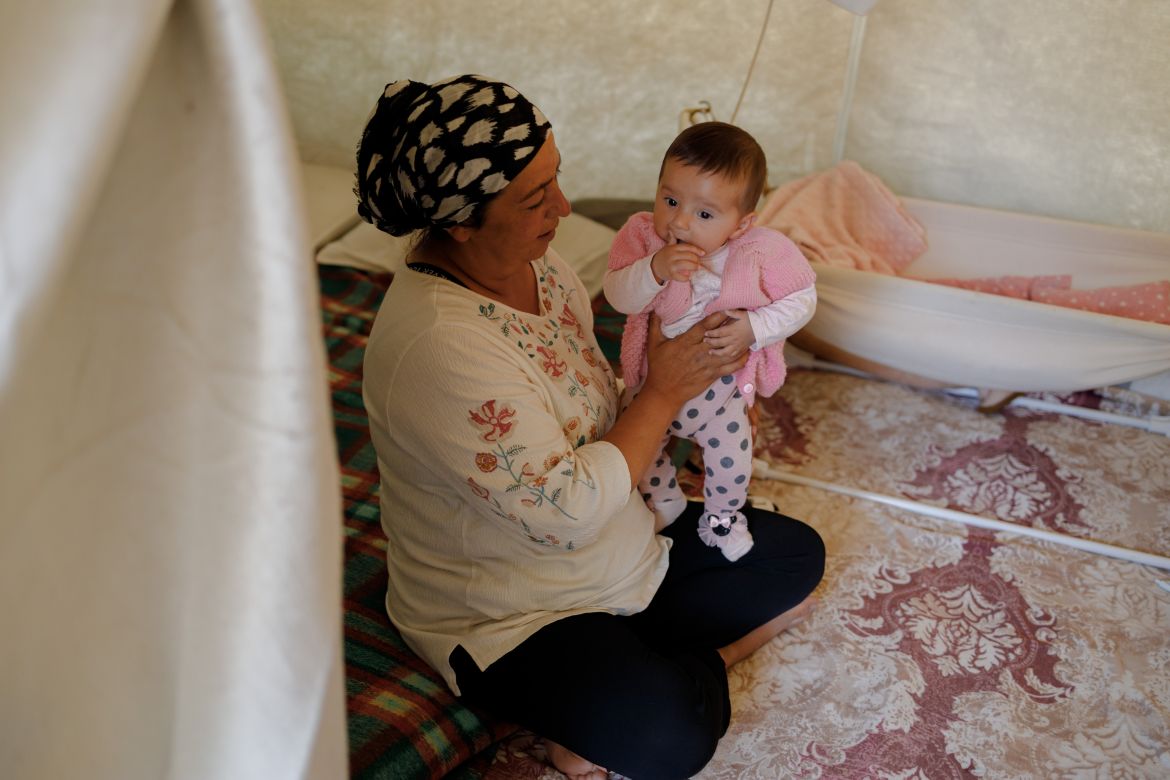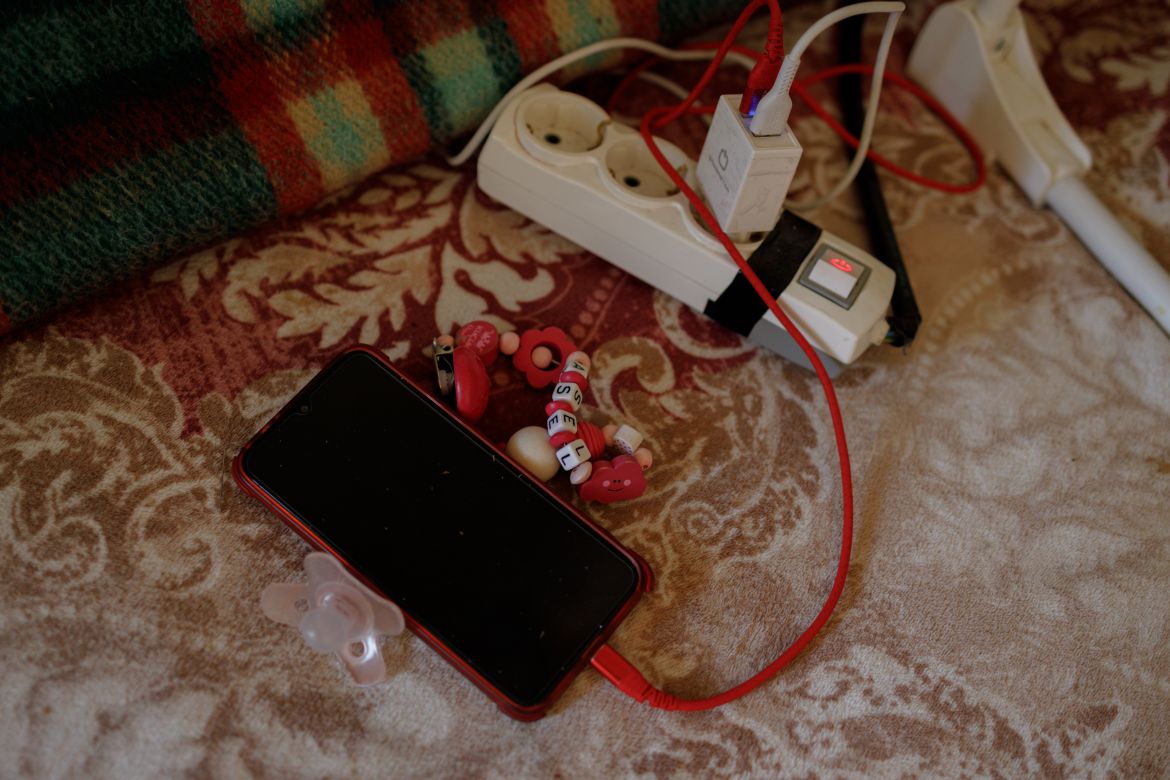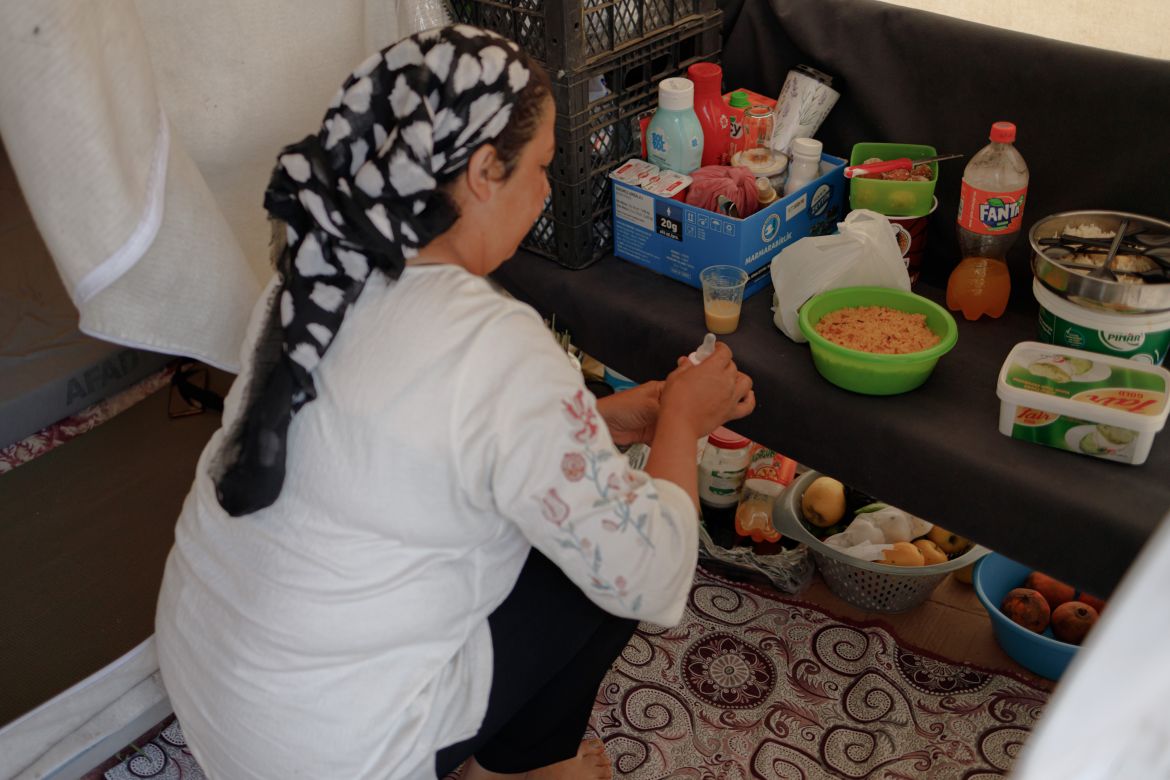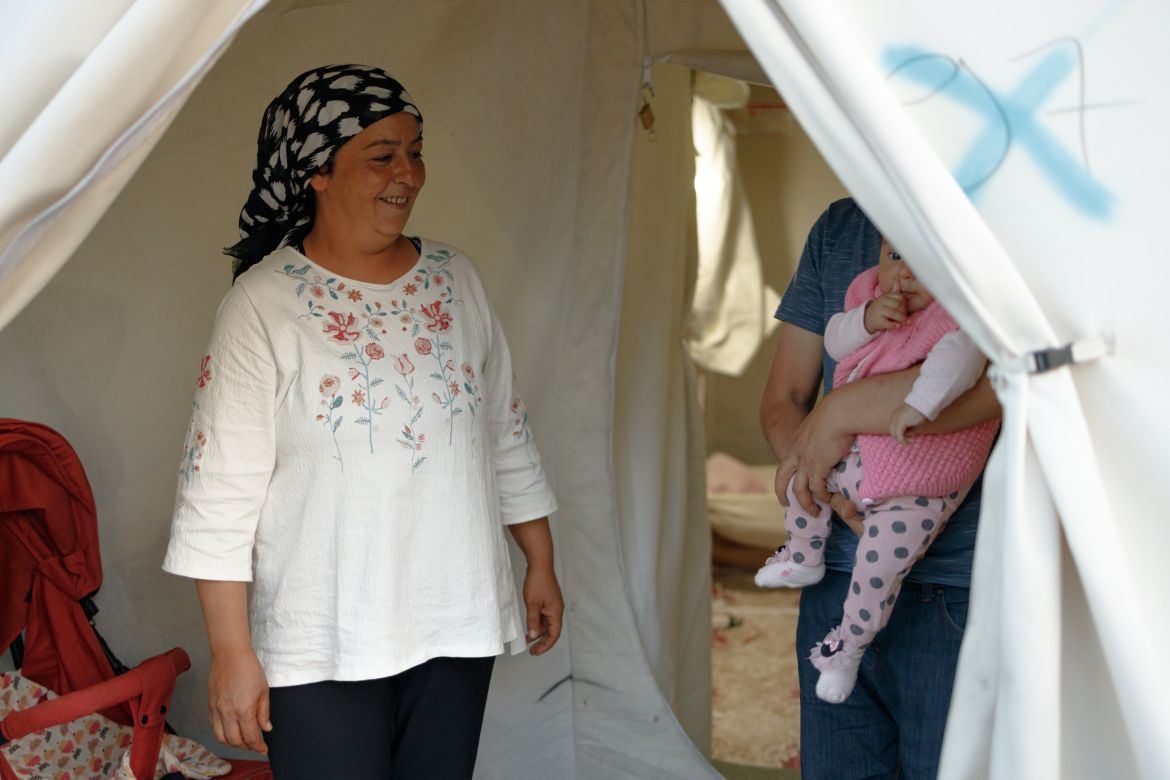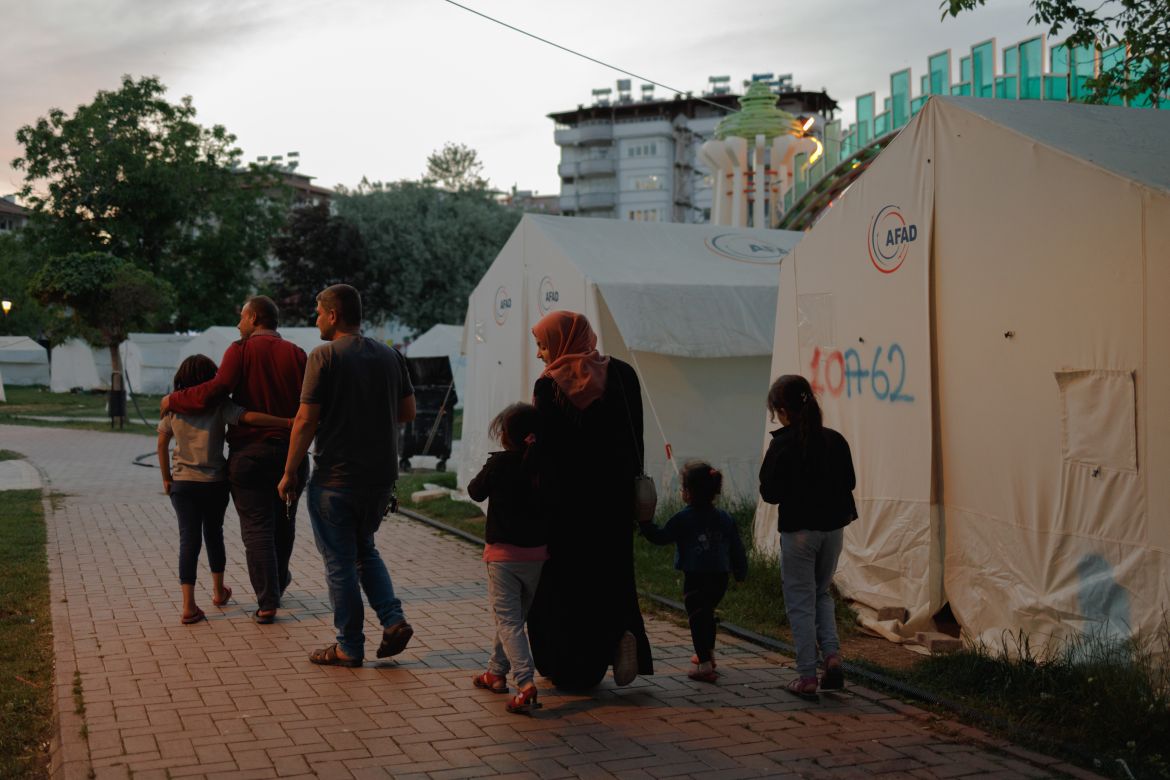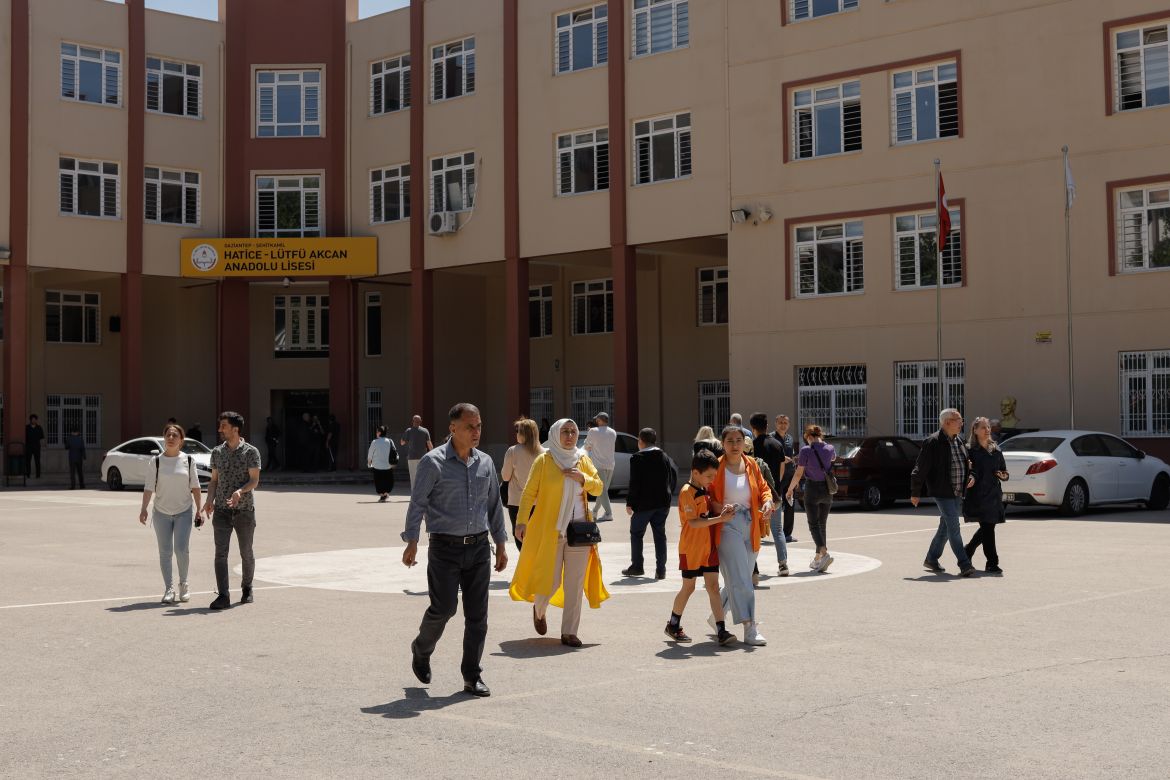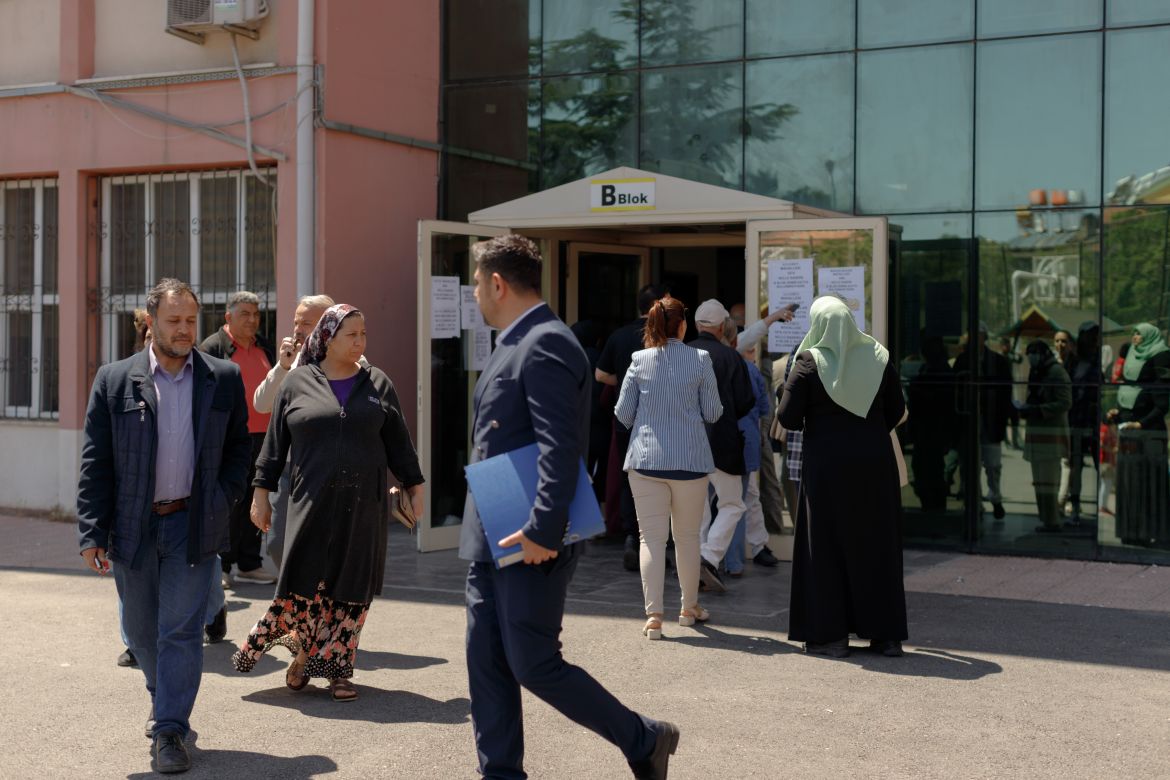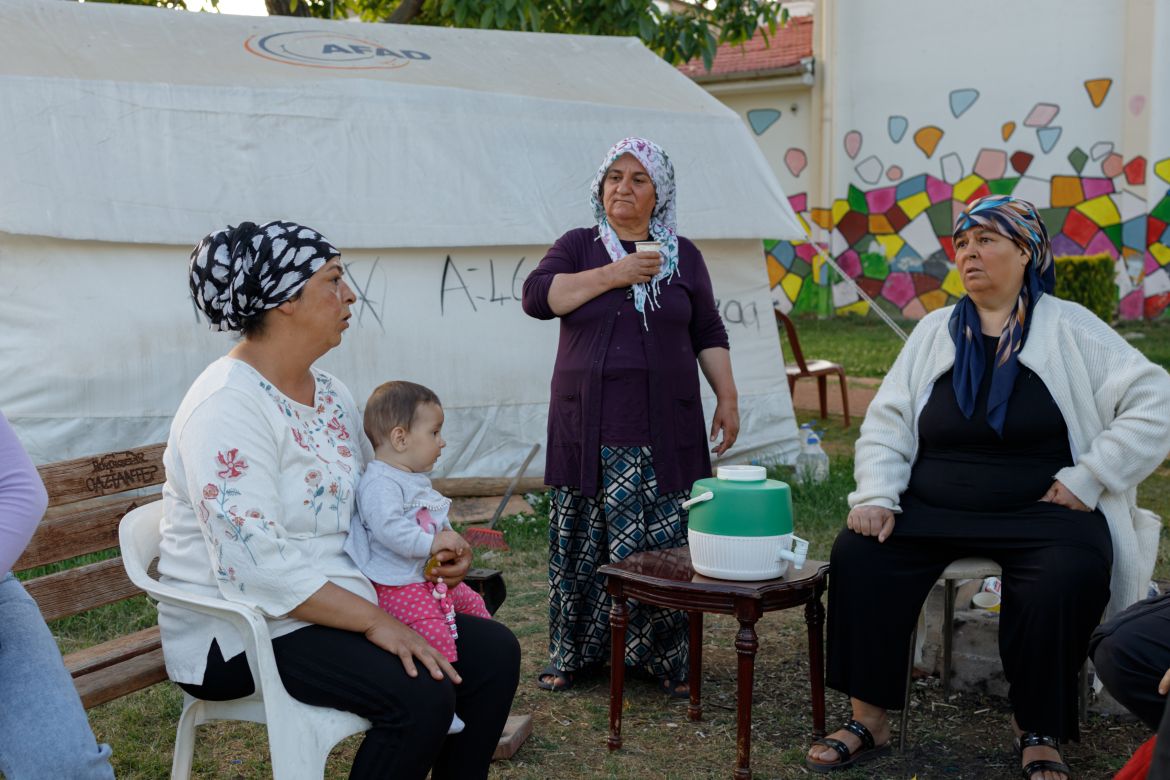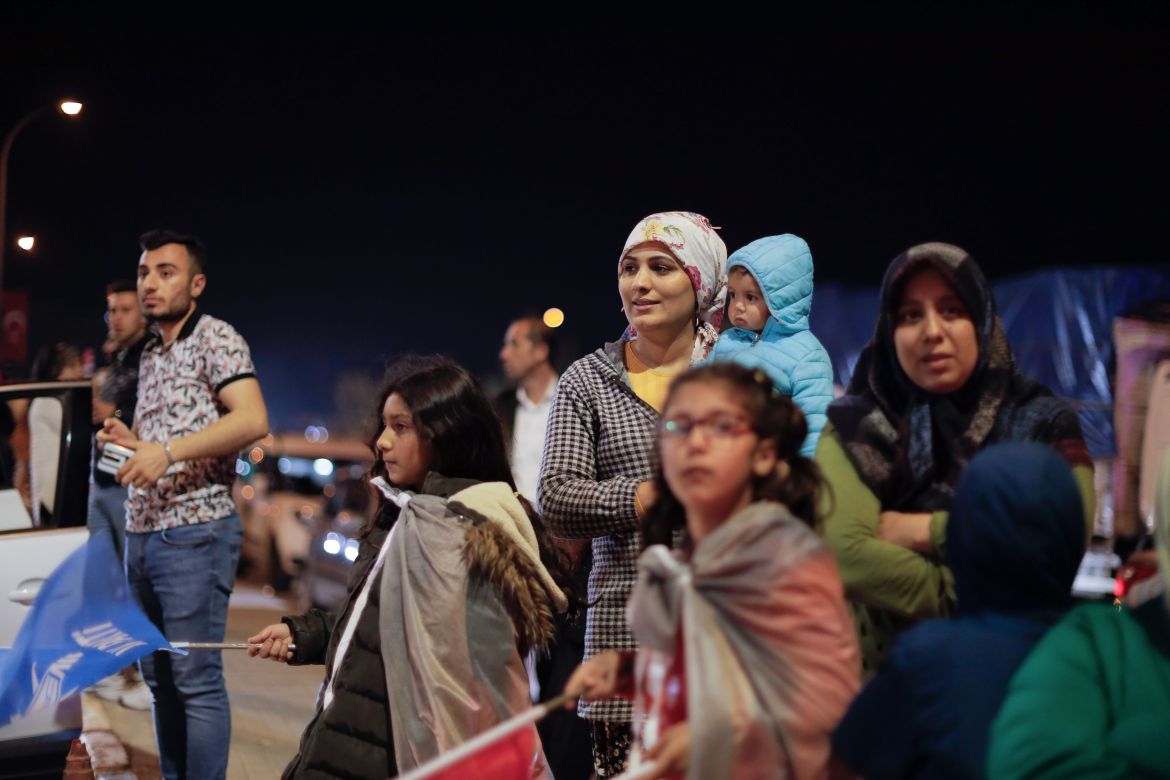In Pictures
Displaced Turkish family in Gaziantep talks about run-off
The Suzers were hoping to have a home to call their own before the elections were held.
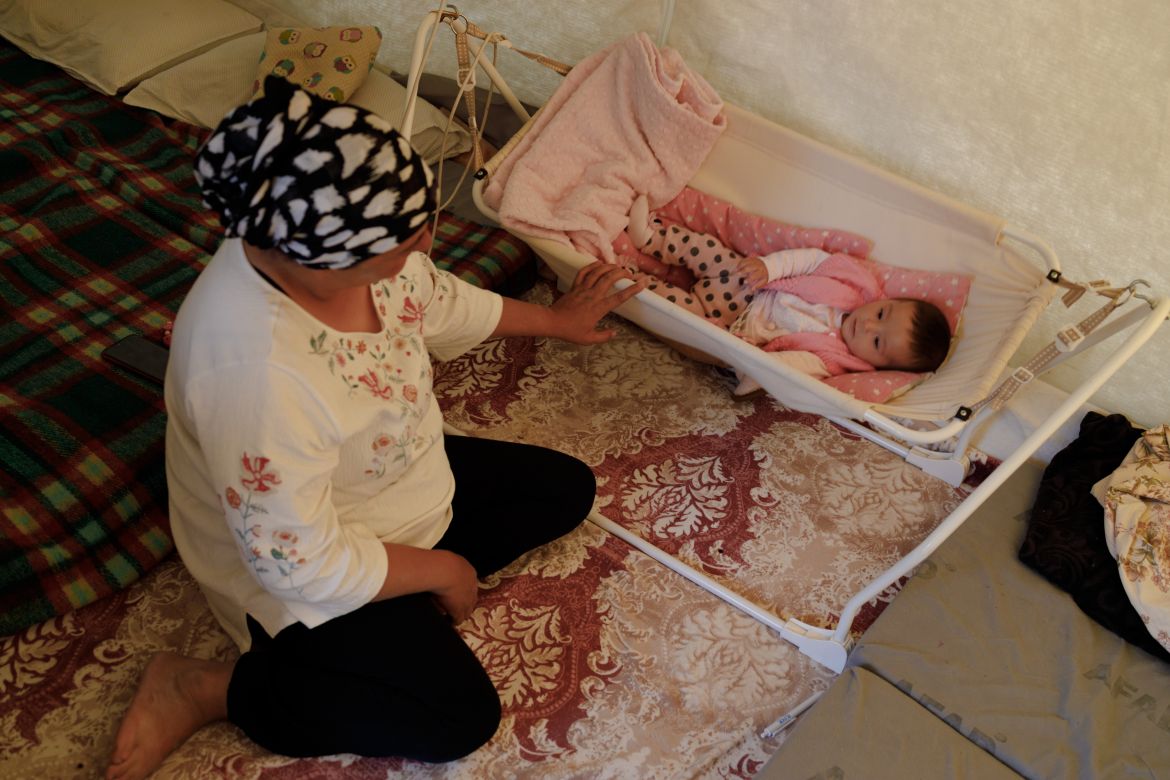
Gaziantep, Turkey – Turkey is set for a second-round vote for president in two weeks’ time, while people still displaced in tented settlements in earthquake-stricken areas say they have spent the “longest night” of the past two decades.
Cramped together, watching live election results as they could – some nervously looking through their phones, others peaking through a tent neighbour’s improvised TV station – thousands held their breath all night.
They didn’t imagine that frantic wait would last even longer, until the early evening of the next day, when the need for a second ballot was finally confirmed.
More than three million people in southeastern Turkey have been displaced after a magnitude 7.8 earthquake killed more than 50,000 people on February 6. Thousands still live in tents and have had to endure extra challenges to cast their vote.
In Gaziantep, where more than 3,000 people died and thousands more remain without a home, Ozlem Suzer, 39, her husband Abbas, 49, and their daughters Fatma and Asel – aged 15 years and seven months, respectively – have been living in a tent provided by Turkey’s disaster relief agency AFAD, for the past three months. As government supporters over the past few years, they say the earthquake shifted their political perspectives.
“We are now refugees in our own country. We feel as if we didn’t have enough support during this time,” says Ozlem’s husband, sitting on the floor of his family’s tent.
The same day the baby was born, Abbas lost his job as a bus driver in Turkey’s escalating economic crisis. Then, the earthquake happened.
Their old house in the city’s Yukarıbayır neighbourhood, which is part of an old housing complex in the suburbs, is too dangerous to return to. They tried looking for a new house, but rent in the city skyrocketed and they couldn’t afford to buy new furniture.
Unlike the majority of voters in more devastated provinces like Hatay or Kahramanmaras, the Suzers were able to cast their vote. But they had hoped the elections would be postponed until survivors like them could fully resettle.
“Our daily life is not normal at the moment, we are not able to think about our future in the long term,” Abbas says. But still, early in the morning of May 14, they asked their neighbours to guard their tent while they were away and walked to the nearest polling station.
In the last elections in 2018, they had decided to not vote as they thought it wouldn’t matter. But the quake motivated them to go. “I don’t think anything will change with the elections, since we lost all hope towards any politician, but a change is needed,” says Ozlem.
Regardless of the results, their biggest fear is that tent settlements will be dismantled soon after the elections end. So they hope the ballot will give them at least two more weeks of safety.
Although the earthquake was initially thought to be a game-changer for the elections, the majority of survivors still voted for the current government in power, despite initial criticisms of how it handled the crisis.
In the cold spring evening breeze of the city where baklava was born, the Ozlems remained vigilant all night, scared that violence might break out any time. Feeling exposed without an actual home, in the open air of Gaziantep’s Masal Park, they spent the night’s darkest hours holding each other.
